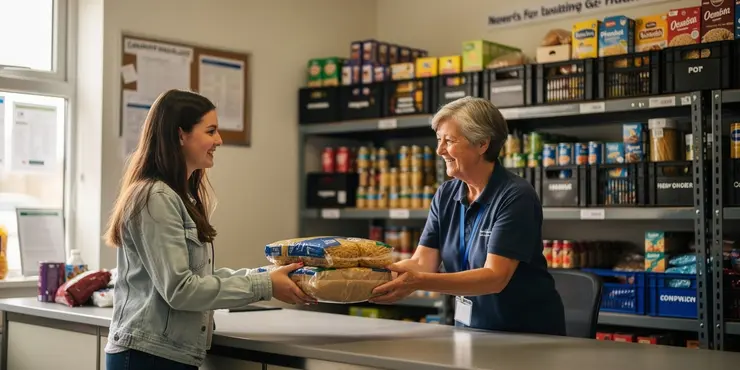
Find Help
More Items From Ergsy search
-
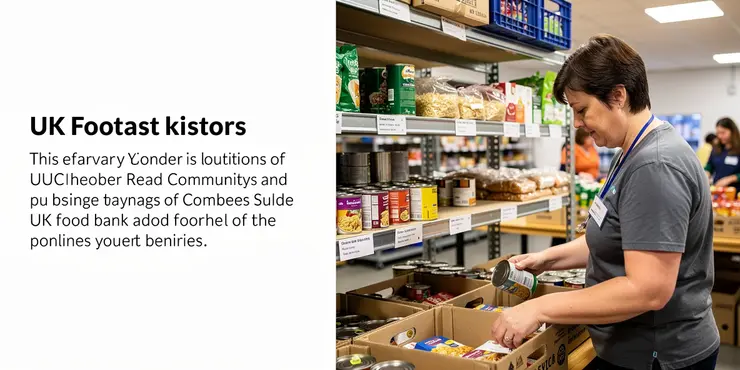
How do food banks get their food?
Relevance: 100%
-
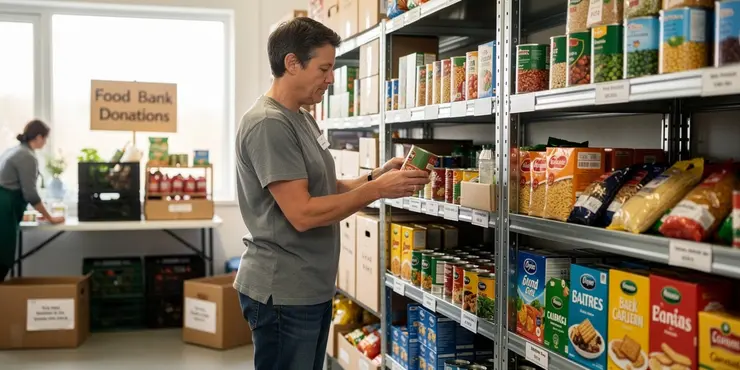
What is a food bank?
Relevance: 100%
-
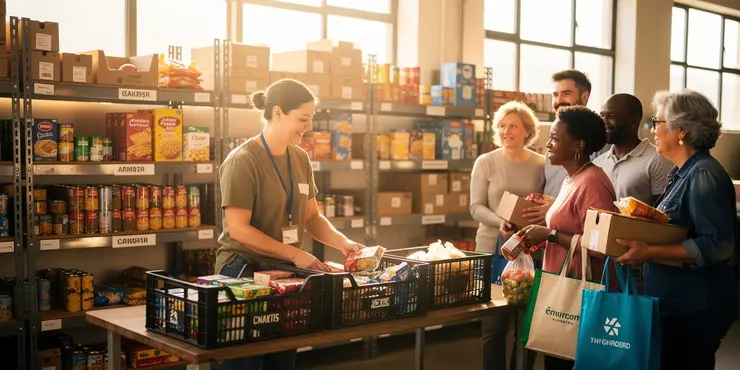
Is there a cost to receive food from a food bank?
Relevance: 97%
-
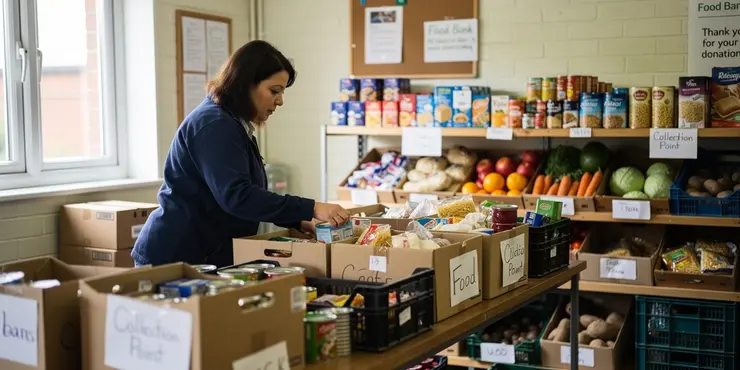
Are food banks open on weekends?
Relevance: 95%
-
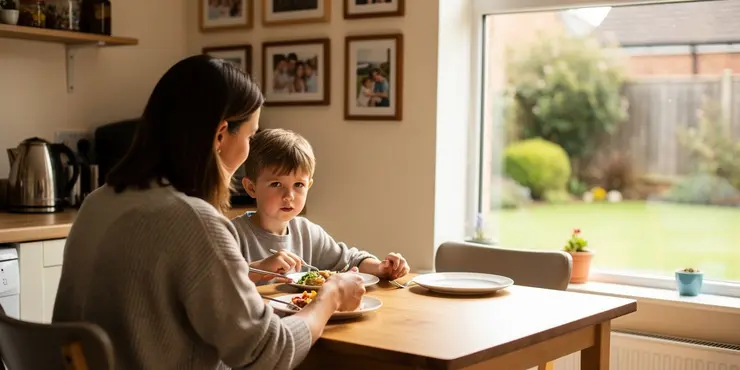
What is the difference between a food bank and a food pantry?
Relevance: 94%
-
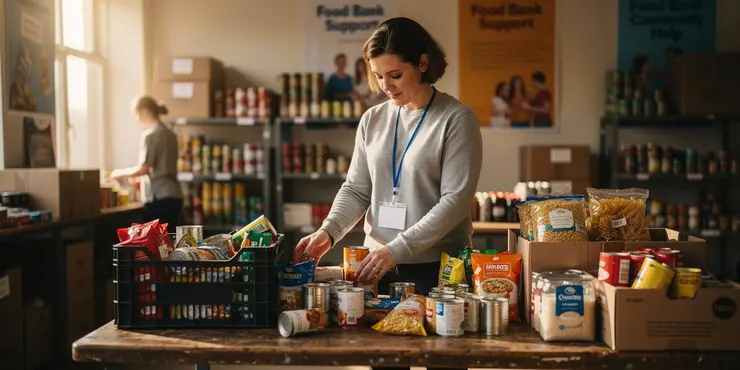
What types of food are typically available at a food bank?
Relevance: 94%
-
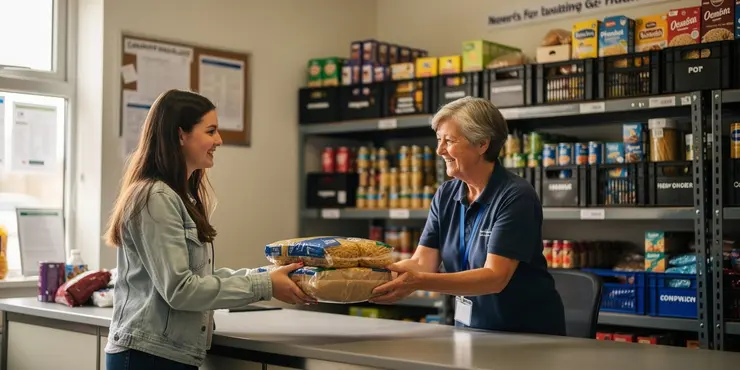
Can anyone use a food bank?
Relevance: 91%
-
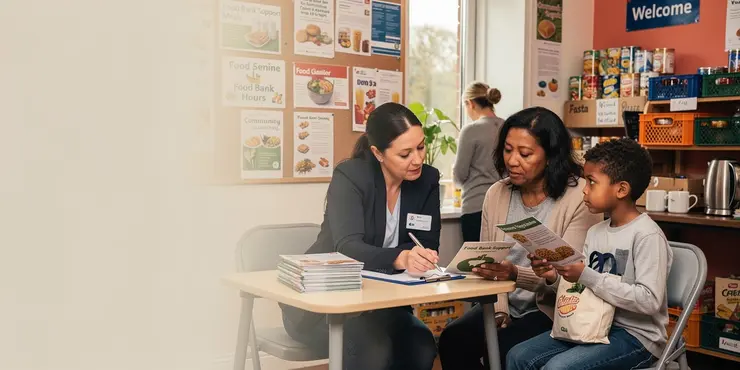
How can I access food banks?
Relevance: 91%
-
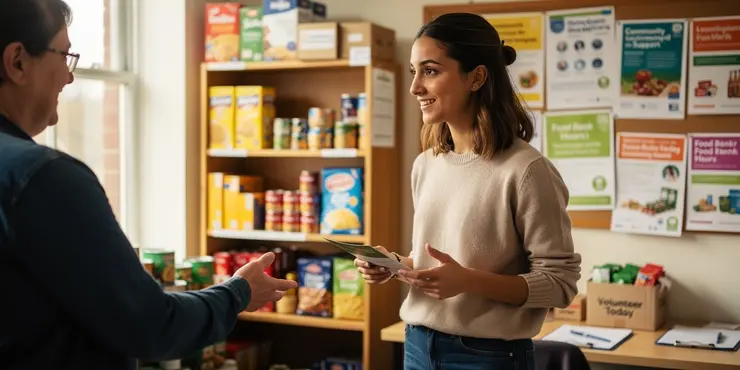
What if there is no food bank near me?
Relevance: 91%
-
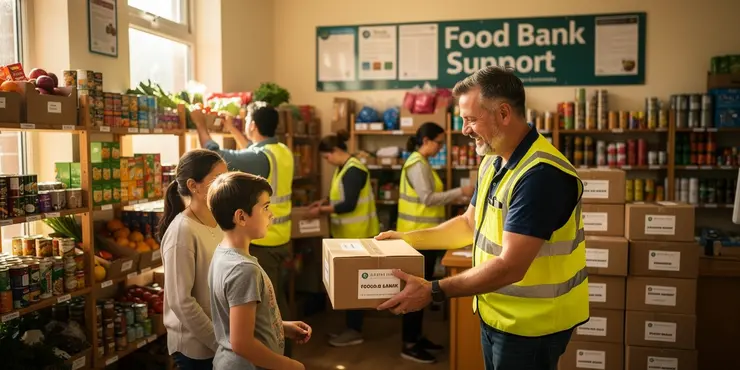
Is there a limit on how much food I can take from a food bank?
Relevance: 89%
-
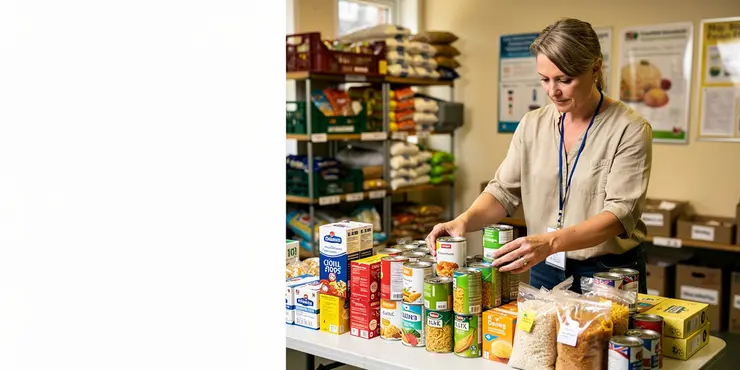
How can I support my local food bank?
Relevance: 87%
-
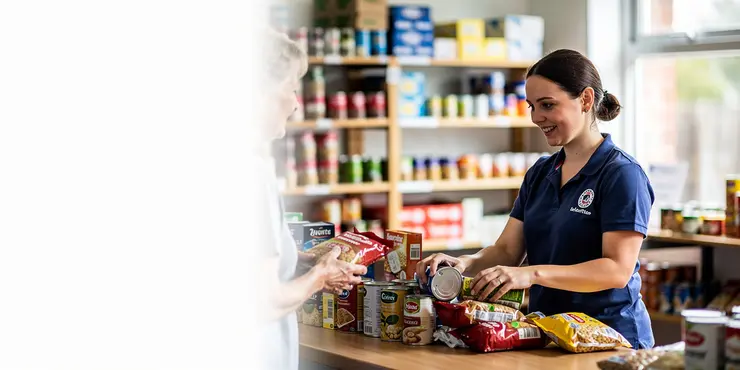
How often can I visit a food bank?
Relevance: 87%
-
Can refugees or immigrants access food banks?
Relevance: 87%
-
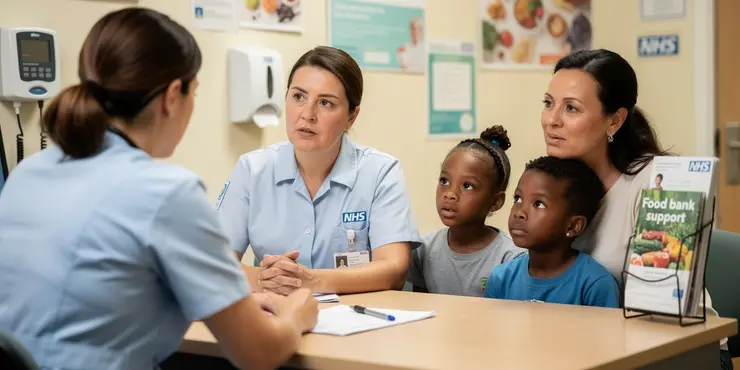
How can I find a food bank near me?
Relevance: 87%
-
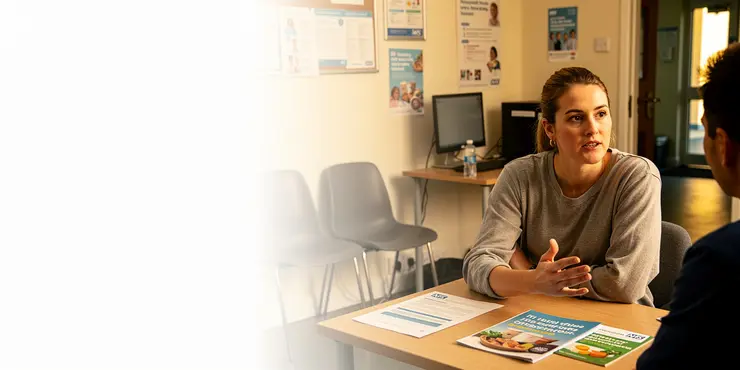
What information do I need to access a food bank?
Relevance: 87%
-
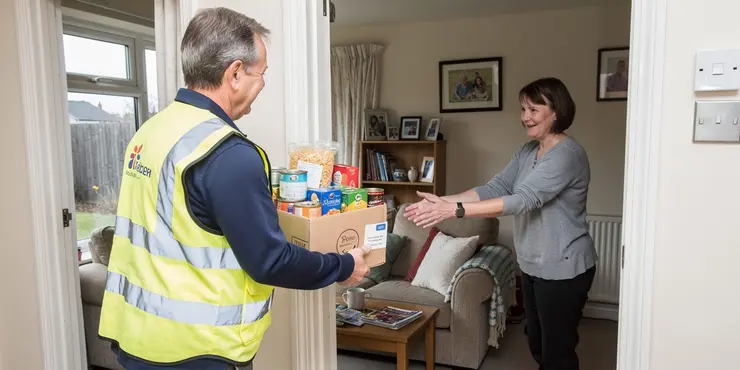
What if I can't physically visit a food bank?
Relevance: 86%
-
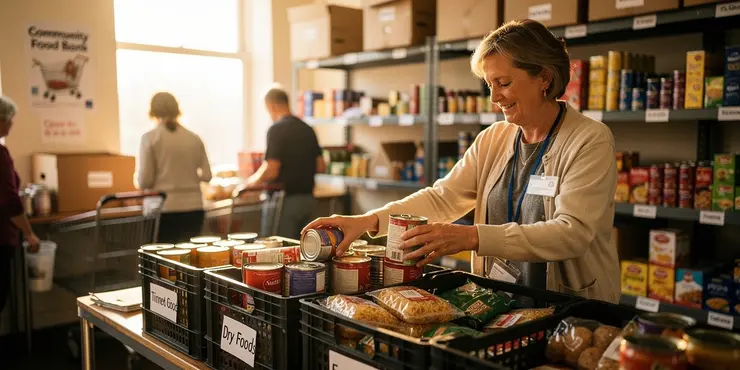
The Rise of Community Food Banks: Combating Hunger Locally
Relevance: 84%
-
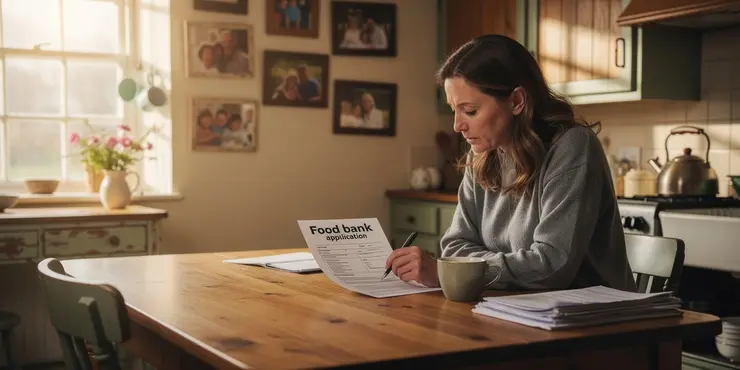
Do I have to provide personal information to access a food bank?
Relevance: 84%
-
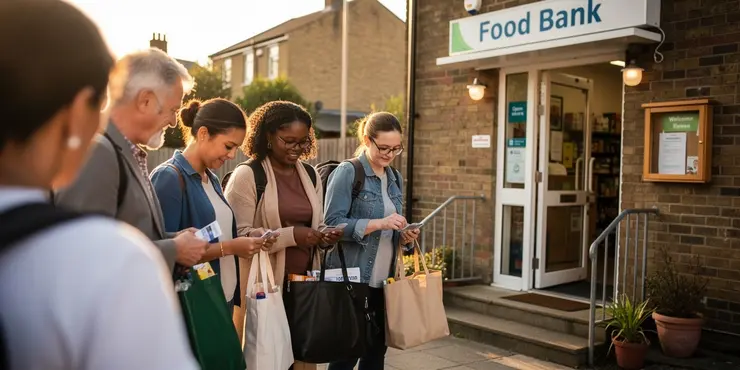
What should I bring with me when visiting a food bank?
Relevance: 84%
-
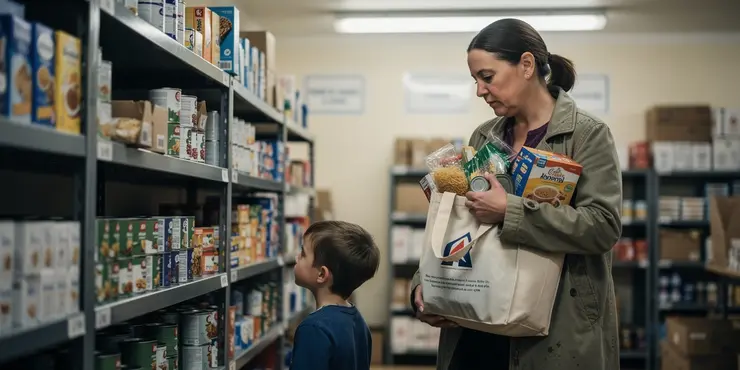
Rise in Food Bank Usage Amid Economic Challenges
Relevance: 84%
-
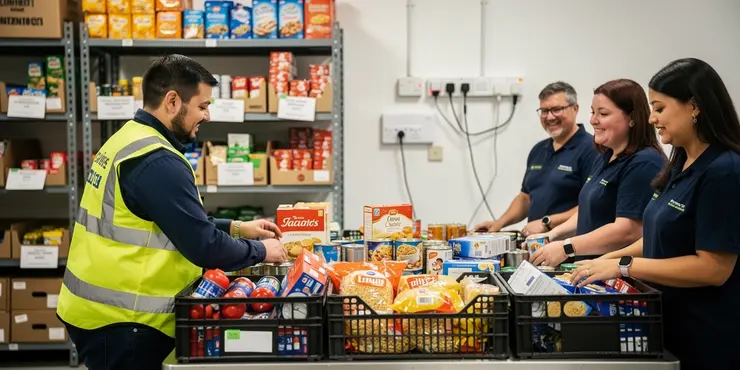
Can I volunteer at a food bank?
Relevance: 73%
-
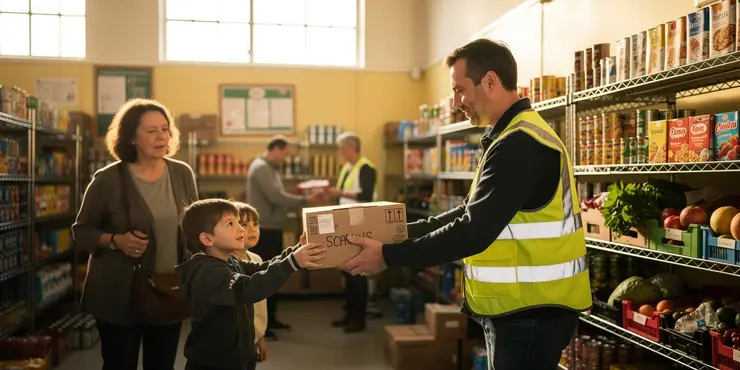
Do I need to make an appointment to visit a food bank?
Relevance: 66%
-
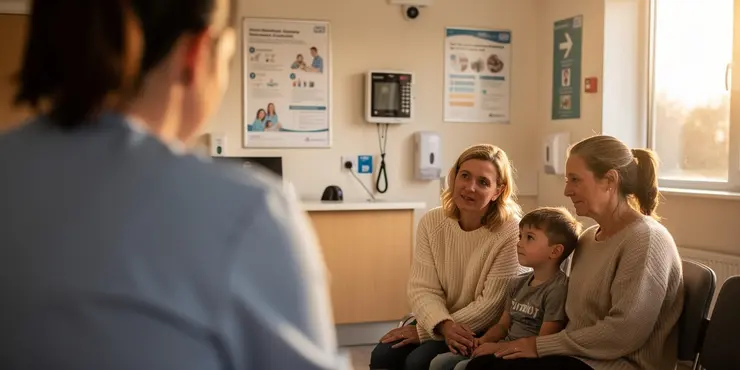
Charities Warn of Food Insecurity Amidst Rising Cost of Living
Relevance: 58%
-
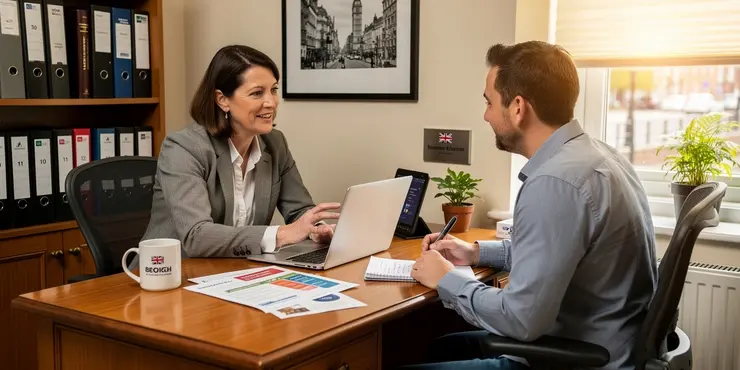
Are online banks cheaper than traditional banks?
Relevance: 54%
-
Are online banks cheaper than traditional banks?
Relevance: 54%
-
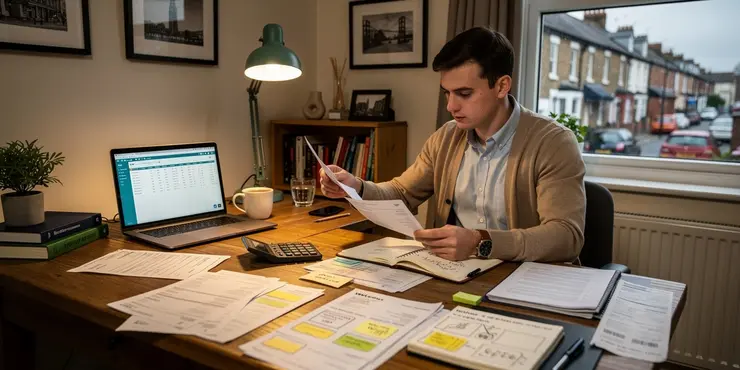
Are there benefits to having multiple bank accounts at different banks?
Relevance: 52%
-
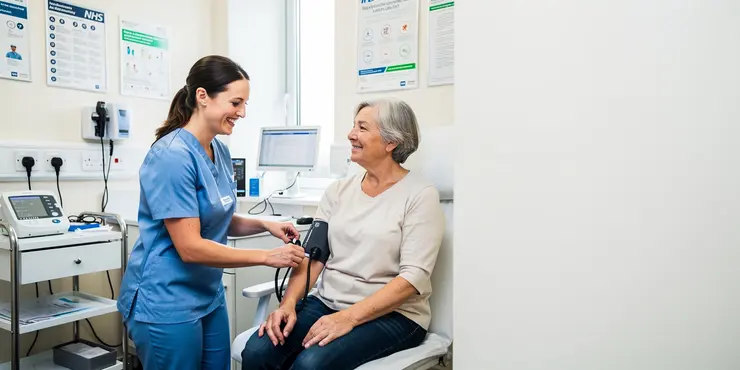
Is all fast food considered junk food?
Relevance: 52%
-
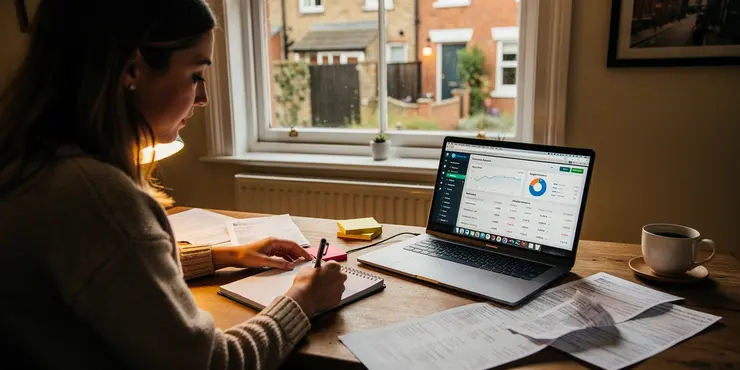
Are there benefits to having multiple bank accounts at different banks?
Relevance: 51%
-
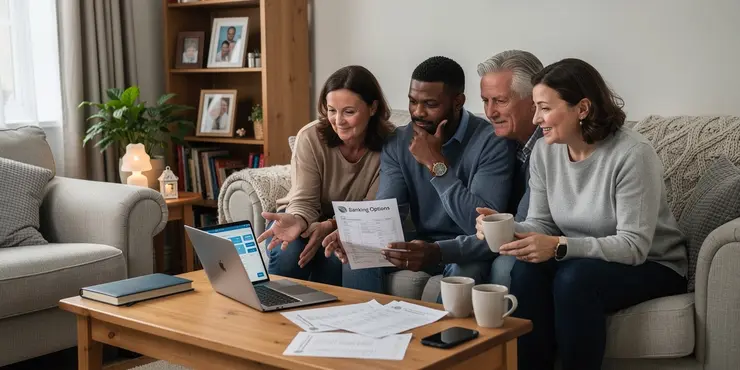
Do online banks have lower fees than traditional banks?
Relevance: 51%
-
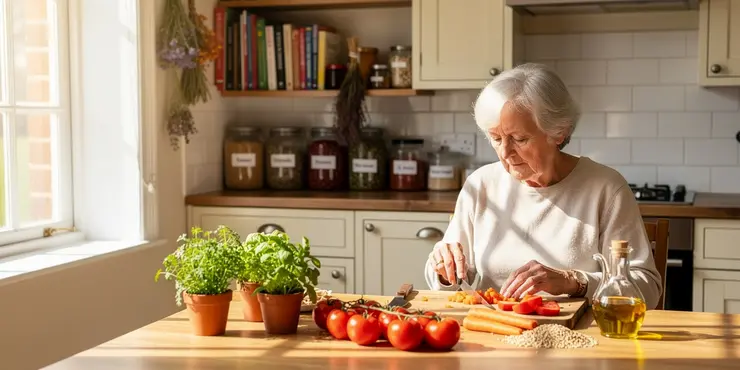
Are there any food assistance programs available for seniors?
Relevance: 50%
-
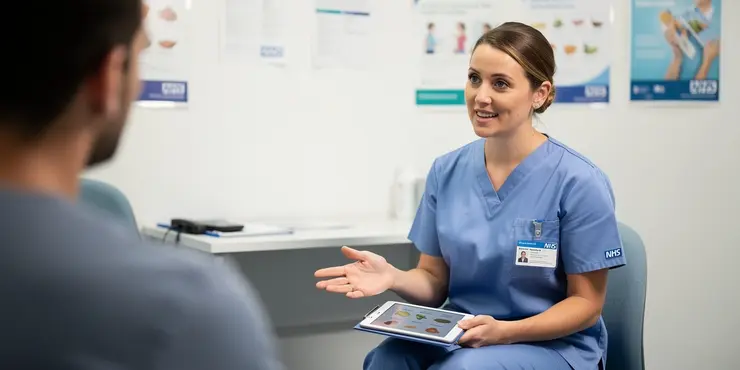
What is junk food?
Relevance: 49%
-
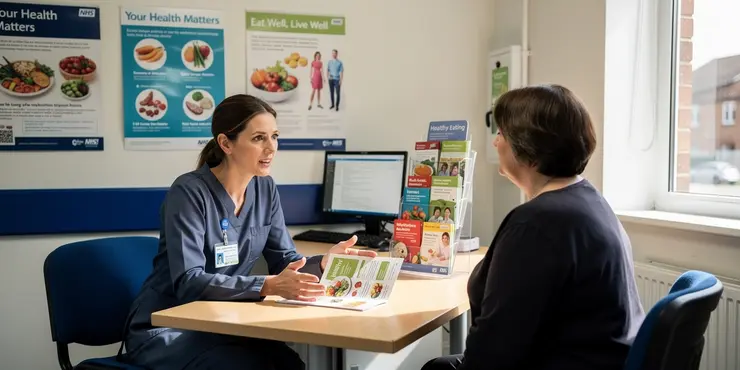
What is junk food?
Relevance: 49%
-
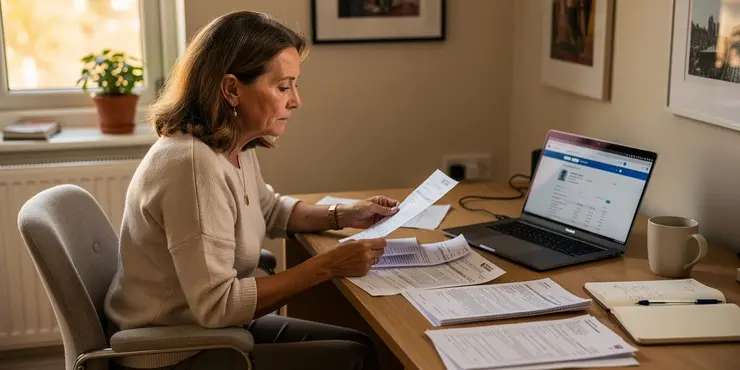
Can I save money by switching my bank?
Relevance: 47%
-
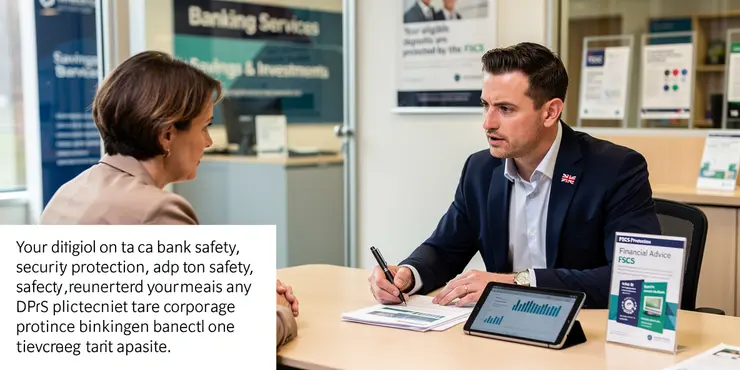
How do I know if a bank is insured and secure?
Relevance: 47%
-
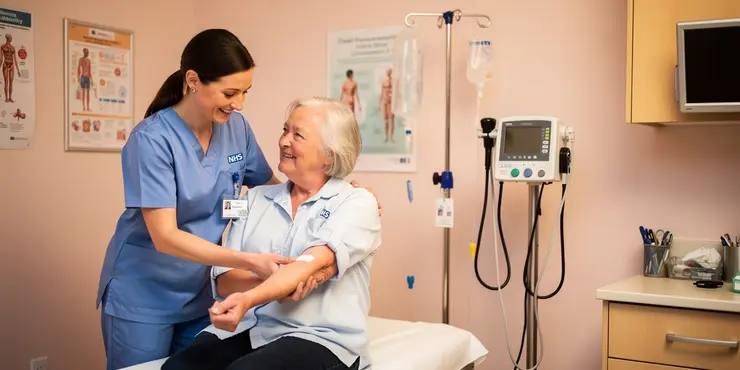
Do online banks offer investment options?
Relevance: 47%
-
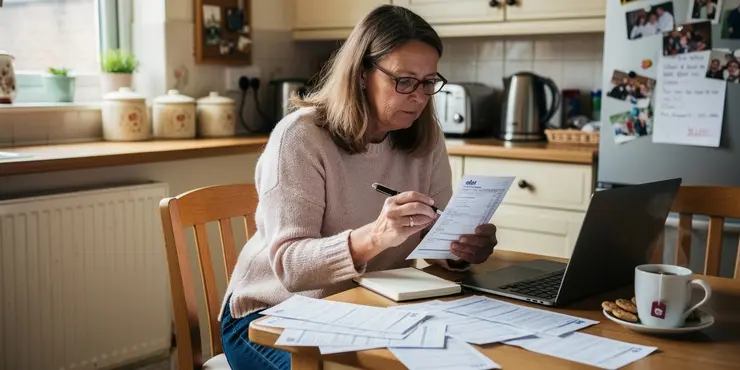
Can I save money by switching my bank?
Relevance: 47%
-
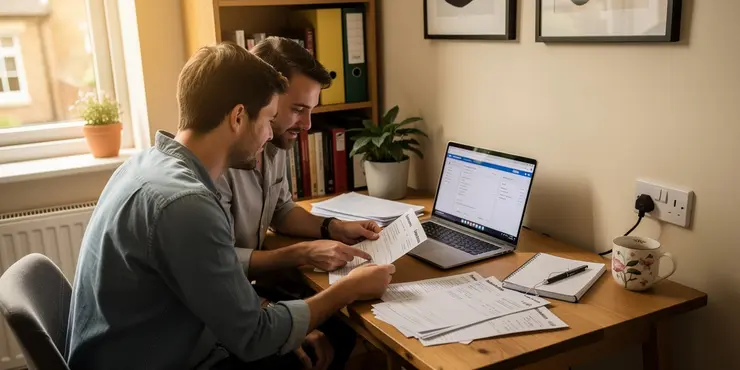
Are there any risks involved in switching banks?
Relevance: 47%
-
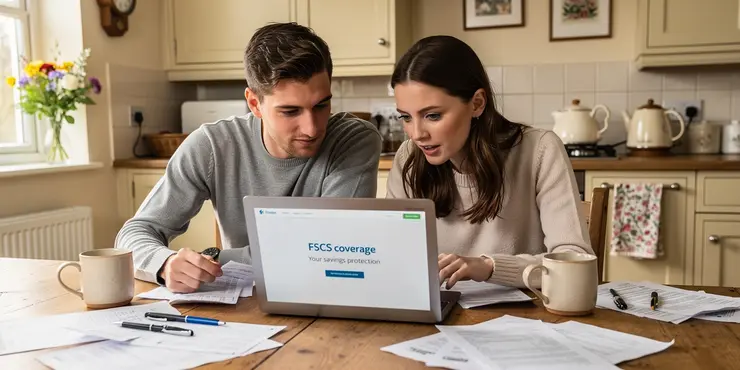
How do I know if a bank is insured and secure?
Relevance: 47%
-

Can I save money by switching my bank?
Relevance: 47%
-

Is it worth switching banks for a sign-up bonus?
Relevance: 47%
Understanding Food Banks in the UK
Food banks are non-profit organizations that provide free food to those in need. These charitable entities play a crucial role in supporting individuals and families facing food insecurity. In the UK, the concept of food banks has gained prominence in recent years due to economic challenges and rising living costs.
Who Can Use a Food Bank?
Food banks in the UK are designed to help those who are struggling to afford the basics. Generally, anyone experiencing financial hardship can use a food bank. However, most food banks require a referral from a recognized agency or professional. This ensures that food aid is directed towards those who need it most, and helps food banks manage their resources effectively.
Common referral sources include social services, health visitors, school staff, and local charities. These professionals assess individual circumstances and provide food bank vouchers or referrals, which can then be exchanged for a food parcel at a participating food bank.
How Do Food Banks Operate?
Upon receiving a referral, individuals visit the food bank where they are warmly welcomed by volunteers. The typical food parcel contains a range of non-perishable items meant to cover basic nutritional needs for a few days. Items often include canned goods, pasta, rice, cereal, and occasionally fresh produce when available.
Food banks also offer additional support, such as advice on managing finances, information on accessing debt relief, and guidance on other welfare resources. The aim is not only to address immediate food needs but also to help individuals move towards long-term stability.
Challenges Faced by Food Banks
While food banks provide essential services, they face several challenges. Demand for their services often exceeds supply, and food banks rely heavily on donations from the public and local businesses. As economic conditions fluctuate, food banks often struggle to meet increasing demands, especially during times of economic downturn or following policy changes affecting welfare support.
The reliance on a referral system also means that those who may be in need, but not yet connected with referral agencies, might face difficulties accessing support. Efforts are ongoing to increase awareness and streamline support pathways.
How You Can Help
Individuals can support food banks by donating food items, making monetary contributions, or volunteering time. Most food banks have collection points in local supermarkets where non-perishable food items can be donated. Financial donations help food banks purchase essential items and cover operational costs. Volunteering provides vital manpower to support food bank operations.
Overall, food banks are a crucial component of the social support infrastructure in the UK, offering relief to those experiencing food insecurity and helping foster community spirit and resilience.
Understanding Food Banks in the UK
Food banks are places where people who need food can get it for free. They help people who do not have enough to eat. In the UK, food banks have become more important because many people are having a hard time with money and the prices of things are going up.
Who Can Use a Food Bank?
Food banks are there to help people who cannot afford to buy enough food. Anyone who has money problems can go to a food bank. But, most food banks ask that a person gets a note from someone like a social worker or school staff. This is to make sure that the food goes to those who really need it.
People who can help with these notes include social workers, health visitors, teachers, or local charities. They look at your situation and give you a note or a voucher. You can take this to the food bank and get food.
How Do Food Banks Operate?
Once you have a note, you can go to the food bank. Friendly volunteers will welcome you. They give you a bag with food that will last a few days. This often has things like cans of food, pasta, rice, cereal, and sometimes fresh food if they have it.
Food banks also help by giving tips on saving money, getting help with debt, and finding other resources. They want to help you not just today but also in the future.
Challenges Faced by Food Banks
Food banks do very important work but they have some problems. Sometimes there are more people who need food than the food available. Food banks depend on people and local businesses giving food and money. When the economy is bad or when welfare rules change, it can be hard for food banks to help everyone who needs it.
The system of needing a note means some people might not get help if they do not know how to get a note. There is work being done to make it easier for everyone to get help.
How You Can Help
You can help food banks by giving food, money, or your time. Many supermarkets have boxes where you can leave food donations. Giving money helps food banks buy what they really need. Volunteering is also very helpful because food banks need people to help run them.
Food banks are very important in the UK. They help people who are hungry and bring the community together.
Frequently Asked Questions
What is a food bank?
A food bank is a nonprofit organization that collects and distributes food to those in need.
Who can use a food bank?
People facing food insecurity or financial hardship are eligible to use a food bank.
Do I need to provide proof of income to use a food bank?
Some food banks may require proof of income or financial need, while others do not. It's best to check with your local food bank.
How often can I use a food bank?
Usage policies vary by location, but many food banks allow visits once or twice a month.
Is there an age requirement to receive food from a food bank?
No, there is no age requirement. Food banks serve individuals and families of all ages.
Do I need a referral to access a food bank?
In some regions, referrals may be required from social services or other agencies. Contact your local food bank for specific requirements.
What identification is needed to use a food bank?
Many food banks require some form of ID, but requirements vary. It's best to contact your local food bank for details.
Can I use a food bank if I am homeless?
Yes, food banks provide assistance to individuals experiencing homelessness.
Are immigrants eligible to use food banks?
Yes, immigrants can use food banks regardless of their legal status.
Can college students use food banks?
Yes, college students facing food insecurity can access food banks.
Is there a limit on how much food I can receive from a food bank?
Food banks usually have guidelines on how much food is provided based on household size and need.
Do food banks provide dietary-specific foods?
Many food banks offer a variety of food options and may accommodate special dietary needs, but availability can vary.
Is there a cost to use a food bank?
No, food banks provide food free of charge to individuals and families in need.
Can I donate to a food bank?
Yes, you can donate non-perishable food items, money, or volunteer your time at a food bank.
How do I find a food bank near me?
You can search online, contact local social services, or check with community centers to find a nearby food bank.
What types of food are typically available at food banks?
Food banks usually provide non-perishable items, such as canned goods, pasta, rice, and sometimes fresh produce and dairy.
Can I use a food bank if I have a job?
Yes, people with low income or facing financial difficulty, even if employed, can use food banks.
Are food banks open during holidays?
Operations vary; some food banks may have special hours or closures during holidays.
Do I need an appointment to visit a food bank?
Some food banks require appointments, while others operate on a first-come, first-served basis. Check with the specific food bank.
Can families with children use food banks?
Yes, food banks support families with children by providing essential food items.
What is a food bank?
A food bank is a place where people can get free food if they don't have enough money to buy it. People in the community give the food, and volunteers help give it out. Food banks help people who need extra support. If you need help or know someone who does, you can visit a food bank.
Tips:
- Ask a grown-up to help you find the nearest food bank.
- Use pictures or videos online to understand more about how food banks work.
A food bank is a place that helps people who don't have enough food. It gives them food for free. A food bank gets food from people who want to help, then gives it to people who need it.
Who Can Go to a Food Bank?
Anyone who needs help getting food can go to a food bank.
Food banks give free food to people who need it.
You may need to call or visit the food bank and ask for food.
Sometimes, you might need to show them a paper from someone who helps you, like a doctor or a social worker.
If you aren’t sure how to get food from a food bank, you can ask someone to help you, like a friend or family member.
If you don't have enough food or money, you can go to a food bank for help.
Do I need to show proof of income to use a food bank?
A food bank helps people get food when they need it. Sometimes, the food bank might ask to see how much money you get. This is called proof of income.
But not all food banks ask for proof. It is a good idea to call the food bank and ask them what they need.
If you find reading hard, ask a friend or family member to help call. They can help you understand what the food bank says.
Some food banks want to see proof of how much money you make. Others do not need this. It is a good idea to ask your local food bank what they need.
How many times can I go to a food bank?
You can go to a food bank a few times. If you need more help, talk to the people there. They can give you advice. You can also ask someone to help you with this, like a friend or a social worker.
Different places have different rules, but many food banks let people come once or twice every month.
Can anyone get food from a food bank, or do you have to be a certain age?
If you need food, you can go to a food bank. It doesn’t matter how old you are. You can be young or old, and they will help you.
Some people find it helpful to bring a friend or family member when they visit the food bank. If you need more help, you can ask someone to come with you or use a simple checklist to remember what you need to do.
No, there is no age limit. Food banks help everyone, no matter how old they are. They help kids, grown-ups, and families.
Can I go to a food bank without a referral?
Food banks are places where you can get food if you need help. Some food banks might ask for a "referral," which is a note from a helper, like a doctor or social worker. But not all food banks need this.
If you want to go to a food bank, it's a good idea to call them first. Ask them if you need a referral. They will tell you what you need to do.
Sometimes, people at local charities or community centers can help you with referrals.
If you find reading hard, you can ask someone to help you call or read for you.
In some areas, you might need a note from social services or other groups. Call your local food bank to find out what you need.
What ID do you need to use a food bank?
When you go to a food bank, you need to show who you are. This is called ID.
Here are some examples of ID:
- Your passport
- Your driver’s license
- A utility bill with your address
If you need help, you can:
- Ask a friend or family member to help
- Use tools like picture charts or apps that help with reading
Food banks often ask for ID, but rules are different everywhere. It's a good idea to call your local food bank to find out more.
To help with reading, you can use tools like text-to-speech apps. These tools can read the text out loud for you. You can also ask someone you trust to help explain things if it gets confusing.
Can I go to a food bank if I have no home?
Yes, you can use a food bank even if you do not have a home.
Food banks give food to people who need it. They help everyone, no matter where you live.
If you need help, go to the nearest food bank and ask for food. They are there to help you.
You can also ask a friend, a helper, or a support worker to go with you if you feel unsure.
Some food banks give extra help, like clothes or advice. Just ask them.
Yes, food banks help people who don't have a home.
Can immigrants use food banks?
Yes, immigrants can use food banks to get food. Food banks help people who need extra food.
If you are worried about using a food bank, you can:
- Ask someone you trust to go with you.
- Call the food bank and ask what you need to bring.
- Look for food banks that are near you.
It's okay to ask for help. Many people use food banks when they need it.
Yes, people who move to a new country can use food banks. It does not matter if they have their papers yet.
Can students at college use food banks?
Yes, students who go to college can use food banks if they need help with food.
Food banks give free food to people who need it. If a student does not have enough money to buy food, they can go to a food bank.
Here are some tips for using food banks:
- Look Online: Use the internet to find a food bank nearby.
- Ask for Help: Talk to someone at your college. They can help you find a food bank.
- Bring a Bag: Take a bag with you to carry the food.
- Be Honest: Tell the food bank workers what kind of food you need.
If reading is hard, you can use tools like text-to-speech apps to help. These tools can read the words out loud for you.
Yes, if college students do not have enough food, they can go to food banks for help.
Can I only get a certain amount of food from a food bank?
If you go to a food bank, you might wonder how much food you can take. Here's some easy information to help:
- Ask the food bank. Food banks might have different rules. Ask them how much food you can get.
- Bring a bag. Take a bag with you to carry the food home.
- Be polite. The people at the food bank are there to help. Say thank you!
It might help to have a friend or family member go with you. They can help you ask questions. Or you can write down your questions before you go. Remember, it's okay to ask for help!
Food banks have rules about how much food they give. The amount depends on how big your family is and what you need.
Do food banks have special foods for different diets?
Food banks give out different kinds of food. They might have special foods for people who eat differently. But they don't always have everything.
Here are some tips:
- Ask the food bank what food they have before you go.
- Tell them if you need special foods.
- Use a list to remember what foods you need.
Do you have to pay to use a food bank?
No, food banks give food for free to people and families who need it.
Can I give food to a food bank?
Yes, you can give food to a food bank. Food banks help people who need food.
Here are some tips:
- Check what food they need. You can ask them or look online.
- Make sure the food is not old or opened.
- You can give cans, boxes of pasta, or rice.
If you need help reading, you can ask someone you trust to help you. You can also use a computer or phone to read the words out loud.
You can help a food bank in three ways:
1. Give food that doesn't go bad quickly.
2. Give money.
3. Spend time helping out there.
How can I find a food bank close to me?
You can look online, ask local help services, or visit community centers to find a nearby food bank.
What food can you get at a food bank?
Food banks give out food to people who need it. They often have different types of food. Here are some things you might find:
- Cans of food like beans or soup.
- Pasta and rice.
- Bread and cereal.
- Fruits and vegetables.
- Milk and cheese.
- Snacks like biscuits or nuts.
If you need help reading or understanding, ask someone you trust. You can also look for easy apps or tools online that can read words to you.
Food banks give out foods that do not spoil easily. They have things like cans of food, pasta, rice, and sometimes fresh fruits, vegetables, and milk.
Can I go to a food bank if I have a job?
Yes, you can go to a food bank even if you have a job.
Sometimes your job does not pay enough for all your food. Food banks can help.
If you need help finding a food bank, you can ask someone you trust or look online.
Yes, people who don't have much money, or are having money problems, can use food banks. This includes people who have jobs.
Do food banks stay open on holidays?
Food banks help people get food. Sometimes, they change their hours on holidays. You can call them or check their website to find out. You can also ask a friend or family member to help you check.
Food banks might be open at different times. Some close or have different hours on holidays.
Do I need to book a time to go to the food bank?
Some food banks ask you to book a time before you visit. This is called an "appointment." Check with the food bank to see if you need one.
If you are not sure, ask someone for help or look on the food bank's website.
You can also try using a phone or a computer to call or email the food bank for more information.
Some food banks need you to make an appointment. Others will help the first people who arrive. It is a good idea to call the food bank and ask what their rules are.
Can families with kids get food from food banks?
Yes, families with kids can get food from food banks. Food banks help people who need food.
If you need help, you can ask a food bank near you. It’s okay to ask for help.
If reading is hard, try asking someone to read with you. You can also use tools like text-to-speech to listen to the words.
Yes, food banks help families with kids by giving them important food.
Useful Links
This website offers general information and is not a substitute for professional advice.
Always seek guidance from qualified professionals.
If you have any medical concerns or need urgent help, contact a healthcare professional or emergency services immediately.
Some of this content was generated with AI assistance. We’ve done our best to keep it accurate, helpful, and human-friendly.
- Ergsy carfully checks the information in the videos we provide here.
- Videos shown by Youtube after a video has completed, have NOT been reviewed by ERGSY.
- To view, click the arrow in centre of video.
- Most of the videos you find here will have subtitles and/or closed captions available.
- You may need to turn these on, and choose your preferred language.
- Go to the video you'd like to watch.
- If closed captions (CC) are available, settings will be visible on the bottom right of the video player.
- To turn on Captions, click settings .
- To turn off Captions, click settings again.
More Items From Ergsy search
-

How do food banks get their food?
Relevance: 100%
-

What is a food bank?
Relevance: 100%
-

Is there a cost to receive food from a food bank?
Relevance: 97%
-

Are food banks open on weekends?
Relevance: 95%
-

What is the difference between a food bank and a food pantry?
Relevance: 94%
-

What types of food are typically available at a food bank?
Relevance: 94%
-

Can anyone use a food bank?
Relevance: 91%
-

How can I access food banks?
Relevance: 91%
-

What if there is no food bank near me?
Relevance: 91%
-

Is there a limit on how much food I can take from a food bank?
Relevance: 89%
-

How can I support my local food bank?
Relevance: 87%
-

How often can I visit a food bank?
Relevance: 87%
-
Can refugees or immigrants access food banks?
Relevance: 87%
-

How can I find a food bank near me?
Relevance: 87%
-

What information do I need to access a food bank?
Relevance: 87%
-

What if I can't physically visit a food bank?
Relevance: 86%
-

The Rise of Community Food Banks: Combating Hunger Locally
Relevance: 84%
-

Do I have to provide personal information to access a food bank?
Relevance: 84%
-

What should I bring with me when visiting a food bank?
Relevance: 84%
-

Rise in Food Bank Usage Amid Economic Challenges
Relevance: 84%
-

Can I volunteer at a food bank?
Relevance: 73%
-

Do I need to make an appointment to visit a food bank?
Relevance: 66%
-

Charities Warn of Food Insecurity Amidst Rising Cost of Living
Relevance: 58%
-

Are online banks cheaper than traditional banks?
Relevance: 54%
-
Are online banks cheaper than traditional banks?
Relevance: 54%
-

Are there benefits to having multiple bank accounts at different banks?
Relevance: 52%
-

Is all fast food considered junk food?
Relevance: 52%
-

Are there benefits to having multiple bank accounts at different banks?
Relevance: 51%
-

Do online banks have lower fees than traditional banks?
Relevance: 51%
-

Are there any food assistance programs available for seniors?
Relevance: 50%
-

What is junk food?
Relevance: 49%
-

What is junk food?
Relevance: 49%
-

Can I save money by switching my bank?
Relevance: 47%
-

How do I know if a bank is insured and secure?
Relevance: 47%
-

Do online banks offer investment options?
Relevance: 47%
-

Can I save money by switching my bank?
Relevance: 47%
-

Are there any risks involved in switching banks?
Relevance: 47%
-

How do I know if a bank is insured and secure?
Relevance: 47%
-

Can I save money by switching my bank?
Relevance: 47%
-

Is it worth switching banks for a sign-up bonus?
Relevance: 47%


